#commercial hvac technician
Explore tagged Tumblr posts
Text
Commercial Energy Efficiency Standards And Regulations In Ontario And Canada
Energy-efficient heating and air conditioning systems go through many rigorous processes in manufacturing to ensure they meet government standards. Canada’s Energy Efficiency Act and Energy Efficiency Regulations provide the requirements manufacturers and dealers must follow. TRI-AIR Systems takes these regulations seriously by offering industry-leading energy efficient products to its customers.
A General Overview of the Regulatory Environment for Energy Efficiency
Whether you need repair work completed, or a new system installed, you will undoubtedly be familiar with the sticker and plates attached to certain types of equipment. All furnaces, air conditioners, and chillers must carry information regarding their energy efficiency. It helps to understand why you see what you do and how it affects the indoor comfort in your building. Here is a general overview of the requirements for Canada and Ontario: https://www.triair.ca/blog/commercial-energy-efficiency-standards-and-regulations-in-ontario-and-canada/
#HVAC company#HVAC technicians#commercial hvac technician#commercial HVAC maintenance#commercial hvac companies
0 notes
Text
Call India Heating, Air Conditioning & Refrigeration, for HVAC System in Aurora
India Heating, Air Conditioning and Refrigeration

With over 20 years of industry experience, India Heating, Air Conditioning, and Refrigeration is the service company to call.
Committed to delivering on the best customer care, you can expect a hassle-free, professional, and transparent experience when choosing India Heating for your heating, air conditioning, refrigeration, and ventilation needs.
Our mission at India Heating, Air Conditioning, and Refrigeration is to respond to our customers’ heating and cooling needs as if they were our own.
We ensure leading-edge services as a local cooling and heating contractor by allowing our employees to develop their skills through continuous training and development. And we are committed to providing superior services in comfort, sustainability, repairs and installations for every customer we meet.
Our mission at India Heating, Air Conditioning, and Refrigeration is to respond to our customers’ heating and cooling needs as if they were our own.
We ensure leading-edge services as a local cooling and heating contractor by allowing our employees to develop their skills through continuous training and development. And we are committed to providing superior services in comfort, sustainability, repairs and installations for every customer we meet.
#HVAC System in Aurora#Aurora#Furnace Services#AC Services#Commercial Refrigeration#Air Quality Services#Aurora AC Technician#HVAC Technician in Aurora
3 notes
·
View notes
Text
#hvac contractor#hvac company#hvac near me#hvac services#hvac repair#commercial hvac#hvac installation#hvac replacement#hvac technicians#hvac#hvac maintenance#hvac duct cleaning#hvacsolutions#hvacproblems#ac repair#ac maintenance#hvacexperts#heating#hvac cleaning#hvac system#hvac training#hvacdesign#hvacparts#hvactechnology
1 note
·
View note
Text
Air quality testing in West Lake Hills-Hybrid HVAC systems in Bee Cave
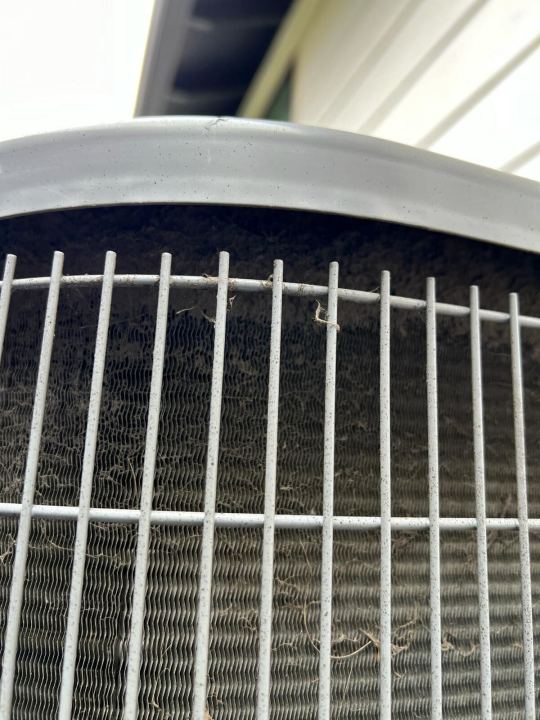
https://usairtx.com/portfolio Air quality testing in West Lake Hills-Hybrid HVAC systems in Bee Cave With a focus on providing a high standard of living in this affluent suburb of Austin, air quality testing services are essential. These services aim to identify and address potential pollutants and allergens in the air, contributing to healthier indoor environments. feel free to contact
#HVAC Austin in Cedar Park#Air conditioning repair in Georgetown#Heating services in Buda#HVAC installation in Austin#Furnace maintenance in Round Rock#Emergency AC repair in Cedar Park#Ductless HVAC systems in Pflugerville#Heat pump services in Leander#HVAC maintenance in Kyle#Indoor air quality services in Manor#Commercial HVAC in Lakeway#Thermostat installation in West Lake Hills#Energy-efficient HVAC systems in Bee Cave#Central air conditioning repair in Sunset Valley#Heater replacement in Dripping Springs#AC tune-up services in Hutto#Ventilation system repair in Hutto#Geothermal HVAC systems in Killeen#Emergency heating repair in Georgetown#HVAC contractor in Buda#Affordable air conditioning services in Austin#Best HVAC Company#Experienced HVAC technicians#Professional heating and cooling services in Georgetown#24/7 HVAC repair service in Austin#HVAC system upgrades in Round Rock#Reliable AC maintenance in Cedar Park#Gas furnace repair in Pflugerville#Energy-efficient Heating Solutions Local HVAC experts in Leander#Residential HVAC services in Kyle
0 notes
Text
🌟 Experience the Texas Pride Heating and Air Difference! 🌟
At Texas Pride Heating and Air, your comfort is our top priority. We’re committed to delivering exceptional service and ensuring your home stays cool and comfortable all year long.
🔧 Need a repair? We provide a 1-hour appointment window and keep you updated every step of the way. Our skilled technicians will fix your HVAC issues promptly and professionally.
Why choose Texas Pride Heating and Air? ✅ Reliable Service ✅ Expert Technicians ✅ Fast and Effective Solutions
Don't let the heat get you down! Contact us today or visit txpride.net to schedule your appointment. Stay cool and stress-free with Texas Pride Heating and Air! ❄️
#texaspridehvac#texans#family#hvac#ac maintenance#hvac services#fort worth#hvac technician#hvac equipment#commercial hvac#airconditioning#air quality#texas heat
0 notes
Text
#commercial hvac#hvac#hvac contractors#hvac installation#hvac maintenance#hvac services#hvac repair#hvac technician
0 notes
Text
Beat the Heat & Chill the Bills: Your Guide to Choosing the Perfect HVAC System
Is your current HVAC system leaving you feeling hot and bothered in the summer and shivering in the winter?
Maybe your energy bills are skyrocketing, and you’re looking for ways to save.
Choosing the right HVAC system is crucial for year-round comfort and controlling your home’s energy consumption.
This guide will help you with the knowledge to navigate the different options and make an informed decision for your needs.
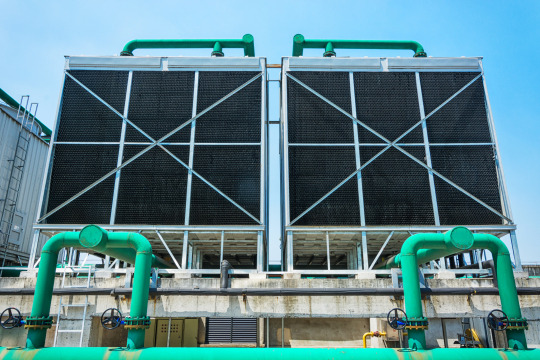
Ducted AC Systems: A Classic Choice for Even Temperatures
Ducted AC systems remain famous for creating consistent and comfortable temperatures throughout a building. Here’s a closer look at the benefits, specifications, and suitability of ducted AC systems:
Benefits:
Even Temperature Distribution: Ducted AC systems distribute cool air evenly throughout a space. This is achieved through a network of ducts that snake through the ceiling, walls, or floors, delivering conditioned air to various rooms. Unlike single-room AC units, ducted systems eliminate hot or cold spots, ensuring a uniform level of comfort in every corner.
Ideal for Multi-Room Applications: Ducted AC systems are perfect for multi-room buildings like houses or large offices. A single central unit cools the entire structure, eliminating the need for individual AC units in each room. This simplifies temperature control and creates a more streamlined aesthetic look.
Powerful Cooling for Larger Areas: Ducted AC systems boast significant cooling capacity. They are well-equipped to handle the demands of more significant buildings with extensive square footage. This makes them ideal for residential spaces like sprawling ranch homes or commercial applications like warehouses and retail stores.
Specifications:
Ductwork Installation: Unlike some other AC system types, ducted systems require ductwork installation throughout the building. This network of ducts can be intrusive in existing structures, potentially requiring modifications to walls, ceilings, or floors. However, ductwork can be seamlessly integrated during the building process for new construction projects.
Regular Maintenance: To ensure optimal airflow and prevent dust buildup within the ducts, ducted AC systems require regular maintenance. This typically involves professional cleaning of the ducts and servicing the central unit. Proper maintenance maximizes efficiency and helps maintain good indoor air quality.
Suitability:
Residential Applications: Ducted AC systems are a prominent choice for various residential applications. They are well-suited for larger homes with multiple bedrooms, living areas, and floors. The even temperature distribution and powerful cooling capacity ensure year-round comfort for the entire family.
Commercial Applications: Ducted AC systems excel in various commercial settings. They are ideal for office buildings, restaurants, retail stores, and other commercial spaces that require consistent cooling throughout a large area. The ability to integrate the ductwork seamlessly into the building’s structure makes it a practical and aesthetically pleasing option.
Panel AC Systems: Discreet Comfort for Smaller Areas
Panel AC units are a favorite choice for low-profile cooling solutions. These compact units offer several advantages, making them ideal for specific applications. Let’s delve deeper into panel AC systems' benefits, specifications, and suitability.
Benefits:
Discreet and Seamless Integration: Unlike traditional AC units, panel ACs are designed to blend seamlessly into your existing space. They are typically mounted flush against ceilings or walls, creating a minimalist aesthetic that complements your décor. This is particularly beneficial in areas where a bulky AC unit might be visually distracting.
Targeted Cooling for Smaller Spaces: Panel AC units excel at efficiently cooling targeted areas. Their compact size and focused airflow make them ideal for smaller rooms or specific zones within a larger space. This targeted approach allows you to cool frequently used areas, like a bedroom or home office, without unnecessarily cooling unused building portions.
Enhanced Aesthetics: For design-conscious individuals, panel AC systems offer a significant aesthetic advantage. Their discreet design eliminates the need for bulky window units or unattractive standalone ACs. This allows you to maintain a clean and modern look in your space without sacrificing comfort.
Specifications:
Efficient Cooling Capacity: While not designed for expansive areas, panel ACs offer efficient cooling capacity for their size. They are well-suited for rooms like bedrooms, sunrooms, or small offices. The focused airflow ensures effective cooling within the targeted zone.
Relatively Simple Installation: Panel AC units are generally easier to install than ducted AC systems. Their compact size and self-contained nature often allow quicker installation with minimal disruption to your existing space. This makes them a good option for situations requiring a faster cooling solution.
Suitability:
Residential Applications: Panel AC systems perfectly fit various residential applications. They excel in bedrooms, where their quiet operation and targeted cooling ensure a comfortable sleep environment. Sunrooms, often prone to overheating, benefit significantly from the focused cool air provided by panel ACs. Small offices or hobby rooms can also leverage panel ACs for efficient cooling without sacrificing valuable floor space.
Cassette AC Units: A Flexible Choice for Comfort and Aesthetics
Cassette AC units, known for their discreet ceiling-mounted design, offer a compelling blend of powerful cooling, even airflow distribution, and aesthetic appeal. Let’s explore this versatile HVAC solution's advantages, specifications, and suitability.
Benefits:
Powerful Cooling and Even Airflow: Cassette AC units pack a punch when it comes to cooling capacity. They are well-suited for moderate to large-sized spaces, effectively distributing cool air in all directions thanks to their multi-directional airflow design. This ensures consistent comfort throughout the room, eliminating hot or cold spots.
Seamless Integration with Drop Ceilings: Cassette AC units are designed for seamless integration. The unit sits flush with the ceiling grid, maintaining a clean and uncluttered aesthetic. This is particularly beneficial in commercial settings like offices and retail stores where maintaining a professional appearance is essential.
Flexibility in Room Design: Unlike traditional AC units that require specific wall placements, cassette ACs offer more flexibility in room design. Since they are mounted on the ceiling, you don’t have to worry about their placement affecting furniture arrangement or blocking valuable wall space.
Specifications:
Drop Ceiling Requirement: A drop ceiling is a key consideration for cassette AC units. The unit integrates within the ceiling grid, so standard ceiling heights might not be suitable. If your space lacks a drop ceiling, alternative AC system types might be more appropriate.
Professional Installation Recommended: While some cassette AC units might appear user-friendly for installation, professional installation is highly recommended. Certified HVAC technicians ensure proper placement, electrical connections, and refrigerant lines are handled safely and efficiently for optimal performance.
Suitability:
Commercial Applications: Cassette AC units excel in various commercial environments. Offices benefit from the powerful cooling, even airflow, and aesthetics that complement a professional setting. Similarly, retail stores can leverage cassette ACs to maintain consistent comfort for employees and customers throughout the space. Additionally, restaurants with drop ceilings can utilize cassette ACs to create a comfortable dining experience.
Larger Residential Applications: Cassette AC units can also be suitable for larger residential areas with drop ceilings. This includes basements converted into living spaces, sunrooms, or family rooms where powerful cooling and even airflow distribution are desired. However, they might be better for standard ceiling heights in bedrooms or smaller living areas.
Conclusion
Now that you’ve explored the different types of HVAC systems and their applications, you’re well on your way to selecting the perfect solution for your home or business. Remember, the ideal choice depends on several factors:
Space: Consider the size and layout of the area you want to cool. Ducted AC systems excel in multi-room applications, while panel ACs are ideal for smaller spaces. Cassette ACs balance powerful cooling and flexibility in moderate to large-sized areas with drop ceilings. Cooling Needs: Evaluate your cooling requirements. Do you need a system for consistent cooling throughout an ample space, or are you looking for targeted cooling in specific zones? Budget: HVAC systems vary in price depending on the type, capacity, and features. Consider the initial investment and the long-term operational costs, including energy efficiency. Aesthetics: If maintaining a clean, modern look is essential, consider panel or cassette AC units that integrate seamlessly into your space.
Consulting a qualified HVAC professional is the most crucial step. They can assess your needs, perform a Manual J calculation to determine the correct size system, and recommend the most suitable option for optimal comfort, efficiency, and budget. With the proper information and professional guidance, you can choose the perfect HVAC system to keep your space comfortable and relaxed all year round.
#hvacexperts#hvac technician#commercial hvac#hvac replacement#hvaclife#hvac systems#hvac solutions#hvac software#hvac services#hvac repair
1 note
·
View note
Text
#hvac services#hvac technician#hvacdesign#hvacductshopdrawingsservices#commercial hvac#hvac software#hvac solutions
1 note
·
View note
Text
How does a heating system work?
Introduction
In the realm of modern living, the heating system serves as an indispensable component, ensuring comfort and warmth within our homes. As we delve into the intricate workings of these systems, it becomes apparent that a nuanced understanding is key to optimizing their efficiency. In this comprehensive guide, we will unravel the complexities of how a heating system operates, offering insights that go beyond the surface level.
Types of Heating Systems
Furnaces: The Heart of Warming Homes
Furnaces stand as stalwart guardians against the chill, operating on the principle of forced air. When the thermostat signals a drop in temperature, the furnace kicks into action. Combustion occurs within the unit, generating heat that is then distributed throughout the house via ductwork. This method ensures a swift and even dissemination of warmth.
Radiant Heating: Embracing Subtle Comfort
For those seeking a more subtle and consistent heat source, radiant heating emerges as a formidable choice. This system operates by circulating warm water through pipes or by using electric coils beneath the floor. The result is a gentle, encompassing warmth that emanates from the surfaces, making it a popular option for various settings.
Heat Pumps: Harnessing Nature's Heat
Innovative in design, heat pumps leverage the inherent warmth in the air or ground, depending on the system type. Acting as both heaters and air conditioners, these systems transfer heat rather than generate it. This dual functionality not only ensures year-round comfort but also positions heat pumps as energy-efficient alternatives.
The Core Mechanism: How Heating Systems Work
Step 1: Initiation
Every heating system begins its cycle with an initiation trigger. This can be a signal from the thermostat indicating a drop in temperature, prompting the system to prepare for action.
Step 2: Generation of Heat
In a furnace-based system, combustion of fuel takes place, producing heat. For radiant heating, it involves the warming of water or electric coils to create the desired warmth.
Step 3: Heat Distribution
Once generated, the heat must be efficiently distributed. In forced-air systems, the furnace propels heated air through ducts, reaching every corner of the home. Radiant systems, on the other hand, gently radiate warmth through floors or walls.
Step 4: Thermostat Regulation
The thermostat acts as the orchestrator, constantly monitoring the ambient temperature. Once the desired warmth is achieved, it signals the heating system to pause, preventing unnecessary energy consumption.
Factors Influencing Heating System Efficiency
Insulation: The Silent Contributor
Efficient insulation plays a pivotal role in the overall effectiveness of a heating system. Properly insulated homes retain warmth, minimizing the workload on the heating system and optimizing energy usage.
Regular Maintenance: Prolonging System Lifespan
Regular maintenance ensures that the heating system operates at peak efficiency. From replacing air filters to checking ductwork, these measures contribute to prolonged system lifespan and sustained performance.
Conclusion
A nuanced understanding of how a heating system operates empowers homeowners to make informed decisions for optimal comfort. Whether opting for a traditional furnace, radiant heating, or embracing the efficiency of heat pumps, each system has its unique advantages. By delving into the core mechanisms and factors influencing efficiency, we pave the way for a cozy, energy-conscious living environment.
#hvac company#commercial hvac#hvac installation#hvac repair#hvac services#hvac replacement#hvac technician#hvac maintenance
0 notes
Text
Simple Strategies to Boost Your HVAC Performance.
No one likes a stuffy, humid room nor a frosty, chilly living space. Ensuring your HVAC system operates flawlessly has a direct impact on your comfort and your wallet. This article offers guidance on how you can dramatically enhance your HVAC performance, enabling you to maintain the perfect environment in your home efficiently and cost-effectively.
Understand Your System
Before you can start taking actions to boost the performance of your HVAC system, you need to understand the basics of its operation.
The Mechanics Behind the Magic
HVAC (Heating, Ventilation, and Air Conditioning) systems heat or cool your home by transferring heat from one area to another. It involves three essential components:
Thermostat: This is the HVAC control panel where you set your desired temperature.
Air Handler: Located inside your house, this part circulates the air.
Heat Pump: Positioned outside, it heats or cools the air before it is circulated.
Understanding the function of these elements helps in discerning which needs attention when performance issues arise.
Regular Maintenance
Keeping your HVAC system running at its best requires regular maintenance. According to Energy Star, regular maintenance can improve your system's efficiency by up to 20%.
Biannual Check-ups
Hire a professional HVAC technician to perform a check-up twice a year, ideally in spring and fall, before the system's major demand periods.
"Routine HVAC maintenance is not a luxury; it's a necessity for every homeowner who wants to enjoy optimum comfort at minimal energy costs."
Keep it Clean.
Cleaning your HVAC system is a critical part of maintenance. It involves:
Regularly replacing filters (every three months or as advised by your technician).
Cleaning the outdoor unit to ensure no debris hinders air flow.
Ensuring your indoor registers and vents are clean and not obstructed.
Program Your Thermostat
Today's thermostats are programmable. You can set them to reduce output when you're away, and ramp up when you're about to return home. This not only increases efficiency but also prolongs the lifespan of your HVAC system.
Insulate Your Home
Insulating your home is equally crucial. It helps to:
Prevent heat from escaping in winter.
Keep heat out in summer.
Reduce energy consumption year-round.
Improve Indoor Air Quality
While not directly linked to HVAC performance, the quality of your indoor air affects your comfort.
Vent It Out
Ventilation helps in maintaining excellent indoor air quality. Ensure your bathrooms and kitchens have exhaust fans, and install trickle vents for fresh air entry into your home.
Humidify and Dehumidify
In dry climates or winter seasons, humidifiers can make a significant difference in comfort levels. Conversely, dehumidifiers can help keep your home comfortable in hot, humid climates.
Upgrading Your System
Upgrading your old HVAC system to a new energy-efficient model can also improve your HVAC performance.
Benefits of Upgrading
A newer model of HVAC unit:
Will likely be more energy efficient.
Could offer improved heating and cooling output.
May incorporate advanced features like zoning or smart controls.
In a Nutshell
To improve your HVAC performance:
Understand how your system works.
Practice regular maintenance.
Strategize your usage.
Maintain good indoor air quality.
Consider an upgrade if your system is old.
By implementing these strategies, you're not only providing your family with a comfortable living environment, but also saving money on energy bills and reducing your carbon footprint. So, ready to master the elements?
Please remember, every HVAC system is unique, and therefore some of the tips may not be applicable to your setting. Always consult with a professional for any HVAC concerns. "The commitment to HVAC performance is a commitment to a more comfortable, cost-effective home."
#commercial hvac#hvac services#hvac solutions#hvac specialist nearby#hvacexperts#hvac technician#hvacmaintenance#hvac#hvaclife
0 notes
Text
Commercial HVAC Solutions: The Importance of Hiring Professionals.

Managing the Florida heat can be a demanding task, particularly for business owners in Palm Beach County and Broward County, Florida, areas. Commercial HVAC systems are critical for maintaining a comfortable and safe environment for customers and employees alike. However, choosing the right HVAC system is no easy feat. If you're exploring high-quality and reliable HVAC options, count on the services of professional experts like Green Technology.
Why should you hire professionals for commercial HVAC needs?
1. Advanced Expertise and Experience.
A professional HVAC company near you has years of experience in installing, maintaining, and repairing commercial HVAC systems. This valuable knowledge allows them to better understand the unique climatic challenges of South Florida's weather, ensuring an efficient and customized solution for your business.
2. Partnership with Trusted Manufacturers.
Top-notch HVAC experts prioritize their clients' satisfaction and welfare. They collaborate with reputable manufacturers such as Daikin, Carrier, and others to provide a wide range of options, allowing them to find the ideal fit for each client.
3. Budget-friendly and High-quality Solutions.
Professional HVAC companies strive to offer seamless solutions that cater to clients' budgets while also exceeding their expectations every step of the way. They ensure your commercial HVAC system delivers optimal performance without compromising affordability.
4. Comprehensive Services.
Hiring professionals means accessing a wide array of services, from installation and maintenance to repair and system upgrades. This comprehensive approach guarantees heightened efficiency and longevity for your commercial HVAC system.
The bottom line is that your commercial HVAC system is crucial for maintaining a comfortable and safe atmosphere in your establishment. By hiring professional experts in Palm Beach County or Broward County, you can secure a top-quality system tailored to your needs.
To learn more about the advantages of hiring professional commercial HVAC experts and how you can benefit from their services, read the full blog post here at Green Refrigeration LLC’s blog page.
Choose Green Technology for reliable and exceptional commercial HVAC services in South Florida. Schedule a visit with their experts today and let them guide you through the process of selecting, installing, and maintaining high-performance commercial HVAC systems for your business.
0 notes
Text
Understanding The Role Of Humidity In Commercial Buildings
Commercial buildings are complex ecosystems bustling with people, equipment, and various activities. But amidst the hustle, one often-overlooked factor plays a crucial role in occupant comfort, health, and even building integrity: humidity. Just like Goldilocks and her porridge, achieving the “just right” level of humidity is vital for optimal performance in your commercial space.
The Science of Humidity: Demystifying the Invisible
Humidity refers to the amount of water vapor present in the air. But measuring humidity isn’t as simple as checking a water gauge. Two terms you’ll encounter often are:
Absolute humidity: The actual amount of water vapor per unit volume of air, usually measured in grams per cubic meter (g/m³).
Relative humidity (RH): The percentage of water vapor present in the air compared to the maximum amount it can hold at a specific temperature. This is the more commonly used metric, with ideal levels typically ranging between 40-60% RH for most commercial buildings.
Finding the Sweet Spot: Optimal Humidity Levels
Think of humidity as the invisible conductor of your building’s well-being. Too high, and you risk mold growth, respiratory issues, and damage to sensitive equipment. Too low, dry air becomes the villain, causing discomfort, static electricity, and even increased risk of transmission of airborne illness. Striking the right balance is key.
While 40-60% RH is a good general guideline, the ideal range might vary depending on your building’s purpose:
Offices: Aim for 40-50% RH for optimal employee comfort and productivity. Dry air can lead to dry eyes, fatigue, and even respiratory problems.
Warehouses: Lower humidity levels (30-40%) are preferred to prevent product damage from moisture absorption.
Healthcare facilities: Maintaining 40-60% RH helps control dust and airborne contaminants, which is crucial for infection prevention.
Unlocking the Benefits: From Healthier Employees to Cost Savings
Maintaining optimal humidity is an investment with multiple returns:
Healthier Employees: Proper humidity reduces respiratory issues, allergies, and dry skin, leading to a healthier and more productive workforce.
Building Preservation: Controlled humidity safeguards furniture, wood flooring, and artwork from cracking and warping, saving on maintenance costs.
Energy Efficiency: Humidifiers can optimize HVAC systems, reducing energy consumption and lowering utility bills.
Navigating the Challenges: Humidity’s Fickle Nature
Maintaining consistent humidity isn’t always easy. Seasonal fluctuations, occupant density, and even building materials can impact moisture levels. Common challenges include:
Seasonal variations: Summer humidity can be high, while winter brings dry air.
Building leaks and ventilation issues: These can contribute to imbalanced humidity levels.
Occupancy fluctuations: More people generate more moisture, requiring adjustments.
Conquering the Climate: Solutions for Effective Humidity Control
#hvac maintenance#hvac company#hvac companies#hvac contractors#commercial hvac contractors#hvac technician#commercial hvac#commercial air conditioning#commercial hvac companies#commercial heating maintenance
0 notes
Text
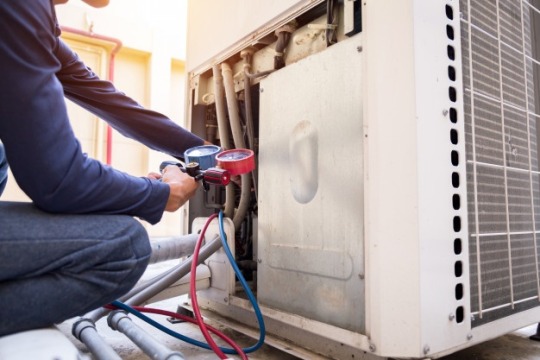
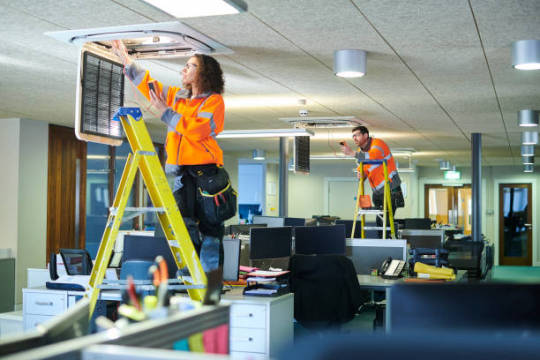
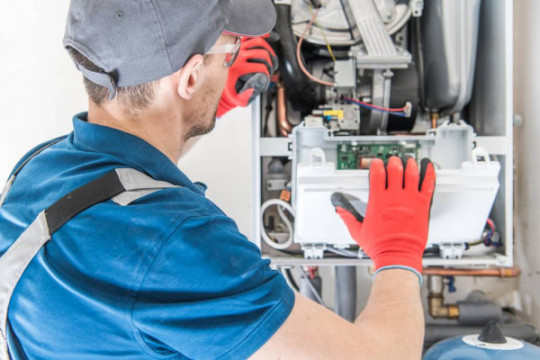
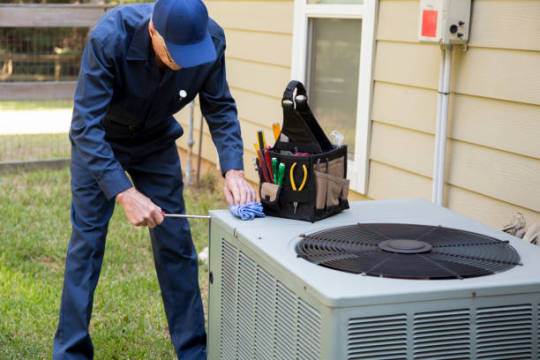
#HVAC contractor santa cruz#HVAC Santa Cruz#HVAC contractor in santa cruz#Heating Contractor santa cruz#HVAC technician in santa cruz#HVAC repair santa cruz#HVAC contractor near me santa cruz#Heating Ventilation and Air Conditioning Santa Cruz#heating contractor in santa cruz#HVAC in Santa cruz#heating and furnace installation company in Santa Cruz#Heating and air conditioning santa cruz#HVAC contractor near me#affordable hvac repair near me#Air Conditioning & Furnace Repair santa cruz#HVAC contractors santa cruz#HVAC contractors near me#residential HVAC contractors santa cruz#Commercial HVAC contractors santa cruz#HVAC technician#heating contractor#ductless heating santa cruz#heating and ac contractor santa cruz#heating and cooling contractor santa cruz#heating and conditioning contractor santa cruz#santa cruz HVAC#Heating and Air Conditioning Installation in Santa Cruz#residential heating and air conditioning companies near me#Commercial Heating And Air Conditioning Service in Santa Cruz
0 notes
Text
Air Conditioning Campbell River- Olivers Power Vacuum
Oliver's Power Vacuum is a company based in Campbell River that offers air conditioning services. They specialize in installing, repairing, and maintaining air conditioning systems for both residential and commercial properties. Their team of experienced technicians uses the latest tools and equipment to ensure high-quality service and customer satisfaction. Oliver's Power Vacuum is committed to providing reliable and affordable air conditioning solutions to the Campbell River community. For more information, you can visit our website:- air conditioning campbell river
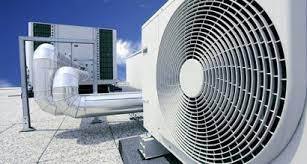
#HVAC#hvac supply near me#hvac technician#hvac heating cooling#hvac equipment#Commercial HVAC#Industrial HVAC#residential hvac duct cleaning
0 notes
Text
HVAC maintenance in Kyle-Indoor air quality services in Manor
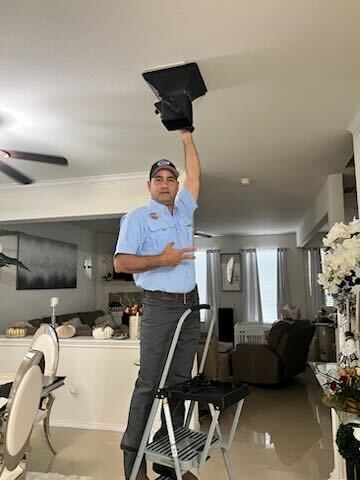
https://usairtx.com/contact
HVAC maintenance in Kyle-Indoor air quality services in Manor commercial HVAC services and thermostat installation services reflects the commitment to creating comfortable and energy-efficient environments in the greater Austin area. Businesses and residents alike benefit from these specialized services, ensuring that indoor climates are tailored to meet the unique demands of the region's diverse and dynamic commercial and residential spaces.
#HVAC Austin in Cedar Park#Air conditioning repair in Georgetown#Heating services in Buda#HVAC installation in Austin#Furnace maintenance in Round Rock#Emergency AC repair in Cedar Park#Ductless HVAC systems in Pflugerville#Heat pump services in Leander#HVAC maintenance in Kyle#Indoor air quality services in Manor#Commercial HVAC in Lakeway#Thermostat installation in West Lake Hills#Energy-efficient HVAC systems in Bee Cave#Central air conditioning repair in Sunset Valley#Heater replacement in Dripping Springs#AC tune-up services in Hutto#Ventilation system repair in Hutto#Geothermal HVAC systems in Killeen#Emergency heating repair in Georgetown#HVAC contractor in Buda#Affordable air conditioning services in Austin#Best HVAC Company#Experienced HVAC technicians#Professional heating and cooling services in Georgetown#24/7 HVAC repair service in Austin#HVAC system upgrades in Round Rock#Reliable AC maintenance in Cedar Park#Gas furnace repair in Pflugerville#Energy-efficient Heating Solutions Local HVAC experts in Leander#Residential HVAC services in Kyle
0 notes
Text
WINTER ALLERGIES ARE REAL! | Allergies stemming from cold weather are not triggered by pollen but by culprits such as mold spores, mildew, dust mites and pet dander. Need relief? Talk to us about HEPA filters and whole-house humidifiers.
#texaspridehvac#texans#hvac#allergies#family#ac maintenance#hvac technician#fort worth#commercial hvac#hvac services#hvac equipment
0 notes